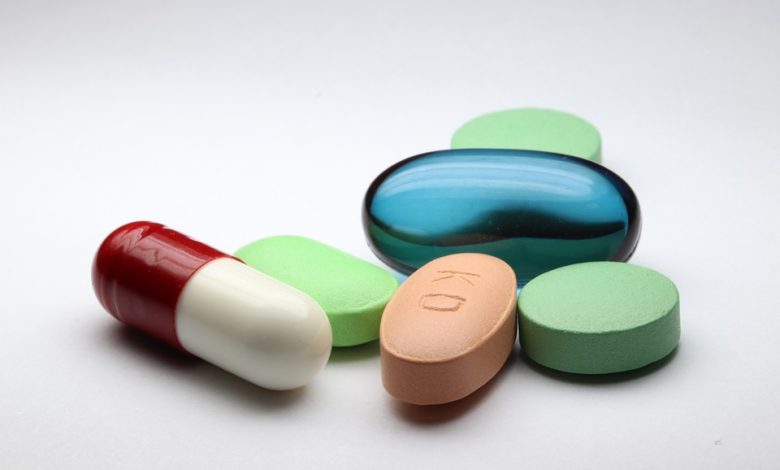Medications and Home Remedies For Sensory Processing Disorder

Sensory processing disorder (SPD) is a neurological condition that affects the way an individual processes and responds to sensory information from their environment. People with SPD may be over-sensitive, under-sensitive, or have difficulty interpreting and integrating sensory information. This can cause challenges in daily life, including difficulties with self-regulation, social interactions, and academic or occupational performance.
The history of SPD is somewhat complex and controversial. The concept of sensory integration was first introduced in the 1970s by occupational therapist and psychologist A. Jean Ayres. Ayres proposed that the way individuals process sensory information can impact their ability to learn and function in daily life. Ayres developed a framework for assessing and treating sensory integration issues, which became known as Ayres Sensory Integration® (ASI).
Over time, the concept of sensory integration expanded to include a broader range of sensory processing issues, including sensory over-responsivity, under-responsivity, and sensory-seeking behavior. In 2013, the term sensory processing disorder was officially recognized in the fifth edition of the Diagnostic and Statistical Manual of Mental Disorders (DSM-5), which classified SPD as a condition under the category of neurodevelopmental disorders.
Despite the official recognition of SPD, there is still some controversy within the medical and scientific communities about the validity and diagnostic criteria of the disorder. Some researchers argue that SPD is not a distinct disorder but rather a symptom of other conditions, such as autism spectrum disorder or attention deficit hyperactivity disorder. Nevertheless, SPD continues to be a recognized condition, and research continues to explore the underlying causes and potential treatments for the disorder.
Causes
The exact cause of SPD is not fully understood, but research suggests that a combination of genetic and environmental factors may contribute to the development of the disorder.
Here are some of the possible causes of SPD:
1. Genetic Factors: Research suggests that SPD may have a genetic component, meaning it may run in families. Several genes have been identified that are associated with sensory processing difficulties, including genes involved in the development and function of the nervous system.
2. Neurological Factors: SPD may be caused by differences in the way the brain processes and integrates sensory information. Studies have found that individuals with SPD have differences in the structure and function of certain areas of the brain that are involved in sensory processing and integration.
3. Premature birth or low birth weight: Children born prematurely or with low birth weight are more likely to develop SPD. This may be due to the fact that premature infants may experience sensory deprivation or overload while in the neonatal intensive care unit, which can affect their sensory processing abilities.
4. Environmental Factors: Environmental factors may also play a role in the development of SPD. Exposure to toxins or chemicals during pregnancy or early childhood, as well as certain infections or illnesses, may increase the risk of developing sensory processing difficulties.
5. Trauma or Stressful Events: Traumatic events such as abuse, neglect, or a serious illness or injury may also contribute to the development of SPD. These experiences can affect the way the brain processes sensory information, leading to sensory processing difficulties.
It is important to note that while these factors may increase the risk of developing SPD, not all individuals with SPD have a clear cause or risk factor. Additionally, SPD often co-occurs with other developmental conditions, such as autism or ADHD, which may also contribute to the sensory processing difficulties experienced by individuals with SPD.
Medications and Home Remedies For Sensory Processing Disorder
While there is no cure for SPD, there are a variety of medications and home remedies that can be used to manage symptoms and improve quality of life. In this section, we will discuss the different medications and home remedies for SPD in detail.
Medications for Sensory Processing Disorder
While there are no medications specifically approved for the treatment of SPD, certain medications can be used to manage the symptoms of the condition. These medications may be prescribed by a healthcare provider and should only be used under medical supervision.
1. Stimulants: Stimulants such as methylphenidate (Ritalin) and amphetamines (Adderall) are commonly used to treat attention deficit hyperactivity disorder (ADHD). These medications may also be helpful for individuals with SPD who have difficulty with focus and attention. Stimulants work by increasing the levels of dopamine and norepinephrine in the brain, which can improve focus and reduce distractibility. However, stimulants can also cause side effects such as insomnia, decreased appetite, and irritability.
2. Antidepressants: Antidepressants such as selective serotonin reuptake inhibitors (SSRIs) and serotonin-norepinephrine reuptake inhibitors (SNRIs) may be used to manage anxiety and depression associated with SPD. These medications work by increasing the levels of serotonin and/or norepinephrine in the brain, which can improve mood and reduce anxiety. However, these medications can also cause side effects such as nausea, dizziness, and sexual dysfunction.
3. Anti-anxiety Medications: Anti-anxiety medications such as benzodiazepines may be used to manage anxiety and agitation associated with SPD. These medications work by increasing the activity of a neurotransmitter called gamma-aminobutyric acid (GABA), which can reduce anxiety and promote relaxation. However, benzodiazepines can also cause side effects such as drowsiness, confusion, and memory impairment.
4. Antipsychotics: Antipsychotics such as risperidone (Risperdal) and aripiprazole (Abilify) may be used to manage irritability, aggression, and sensory overload associated with SPD. These medications work by blocking dopamine receptors in the brain, which can reduce irritability and aggression. However, antipsychotics can also cause side effects such as weight gain, drowsiness, and movement disorders.
It is important to note that medication is not a cure for SPD, and medications should only be used under medical supervision. Additionally, medications may not be effective for all individuals with SPD, and the benefits and risks of medication use should be carefully considered before starting treatment.
Home Remedies for Sensory Processing Disorder
In addition to medication, there are a variety of home remedies and lifestyle changes that can be used to manage the symptoms of SPD. These home remedies may be used in conjunction with medication or on their own, depending on the severity of the symptoms.
1. Sensory Integration Therapy: Sensory integration therapy is a type of occupational therapy that is designed to help individuals with SPD improve their ability to process and respond to sensory information. The therapy involves a variety of activities and exercises that are designed to stimulate the senses and improve sensory integration. Examples of sensory integration activities include swinging, bouncing on a therapy ball, and playing with tactile materials such as sand or playdough.
2. Exercise: Exercise is a natural way to reduce stress and anxiety, and can also help to improve focus and attention. Engaging in regular exercise can help individuals with SPD manage their symptoms and improve their overall well-being. Some examples of exercise that may be helpful for individuals with SPD include yoga, tai chi, and swimming.
3. Dietary Changes: Some individuals with SPD may be sensitive to certain foods or food additives, which can exacerbate their symptoms. Making dietary changes such as eliminating certain foods or additives may be helpful in reducing symptoms. Additionally, some individuals with SPD may benefit from a diet rich in omega-3 fatty acids, which have been shown to have a positive effect on brain function.
4. Deep Pressure Therapy: Deep pressure therapy involves the application of firm pressure to the body, which can provide a calming and grounding effect. This type of therapy can be achieved through activities such as wrapping the body in a weighted blanket or using a compression vest.
5. Environmental Modifications: Making modifications to the home or work environment can be helpful in reducing sensory overload and improving sensory integration. Examples of environmental modifications include using noise-canceling headphones, adjusting lighting levels, and using ergonomic furniture.
6. Mindfulness Meditation: Mindfulness meditation is a practice in which an individual focuses their attention on the present moment, without judgment or distraction. This type of meditation has been shown to be effective in reducing stress and anxiety and may be helpful for individuals with SPD who experience sensory overload or hypersensitivity.
7. Sleep Hygiene: Sleep is crucial for overall health and well-being, and individuals with SPD may be particularly sensitive to disruptions in their sleep patterns. Establishing a consistent sleep routine, avoiding stimulants such as caffeine and electronics before bed, and creating a comfortable sleep environment may be helpful in improving sleep quality for individuals with SPD.
It is important to note that home remedies and lifestyle changes should be used in conjunction with medical treatment and under the guidance of a healthcare provider. Additionally, what works for one individual with SPD may not work for another, and a trial-and-error approach may be necessary to find the most effective combination of remedies and treatments.
Conclusion
Sensory Processing Disorder is a complex neurological condition that can manifest in a variety of ways, and can significantly impact an individual’s quality of life. While there is no cure for SPD, a combination of medication and home remedies can be used to manage symptoms and improve overall well-being. It is important for individuals with SPD to work with a healthcare provider to develop a comprehensive treatment plan that is tailored to their individual needs and preferences. With the right treatment and support, individuals with SPD can lead fulfilling and productive lives.





